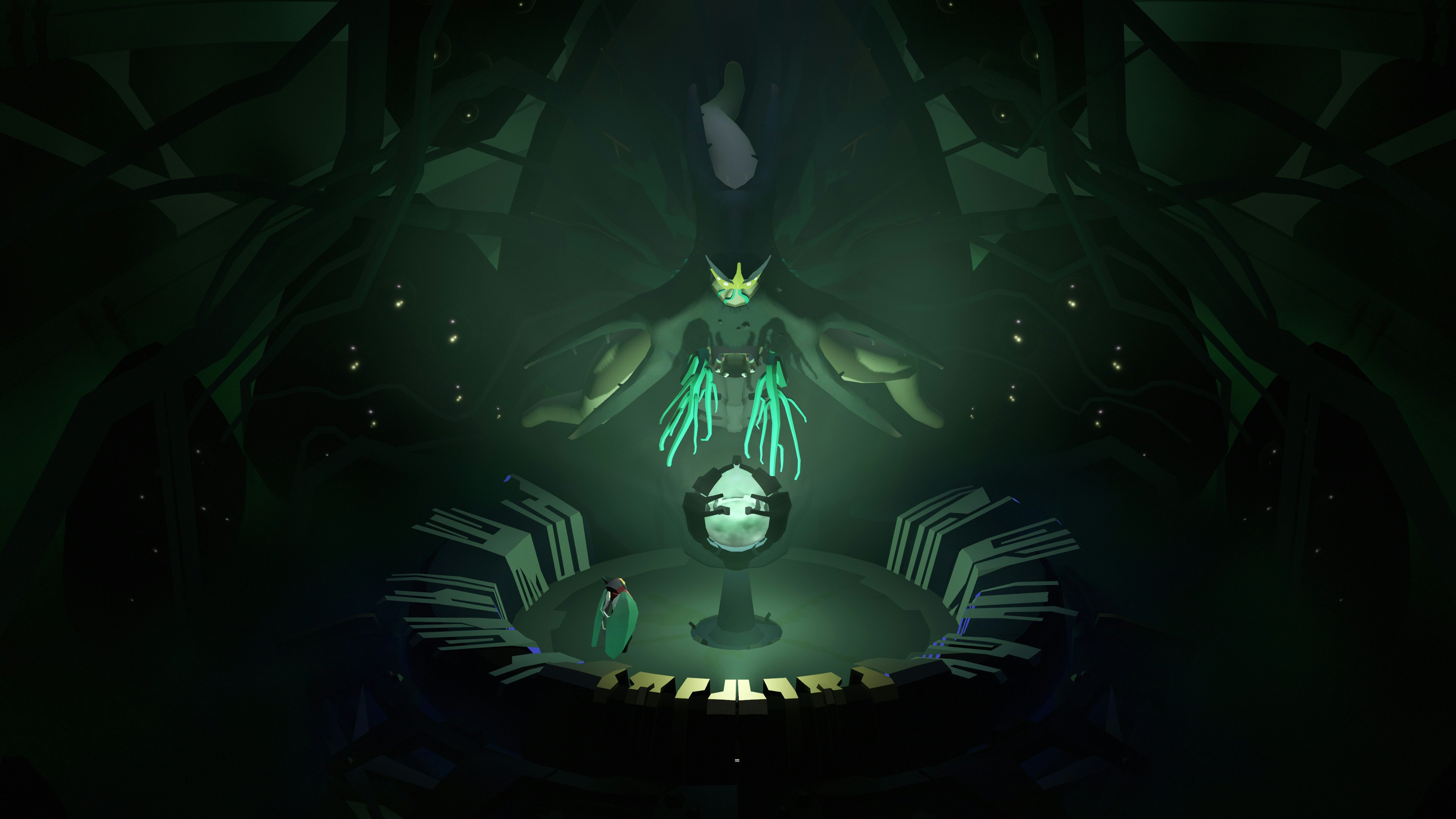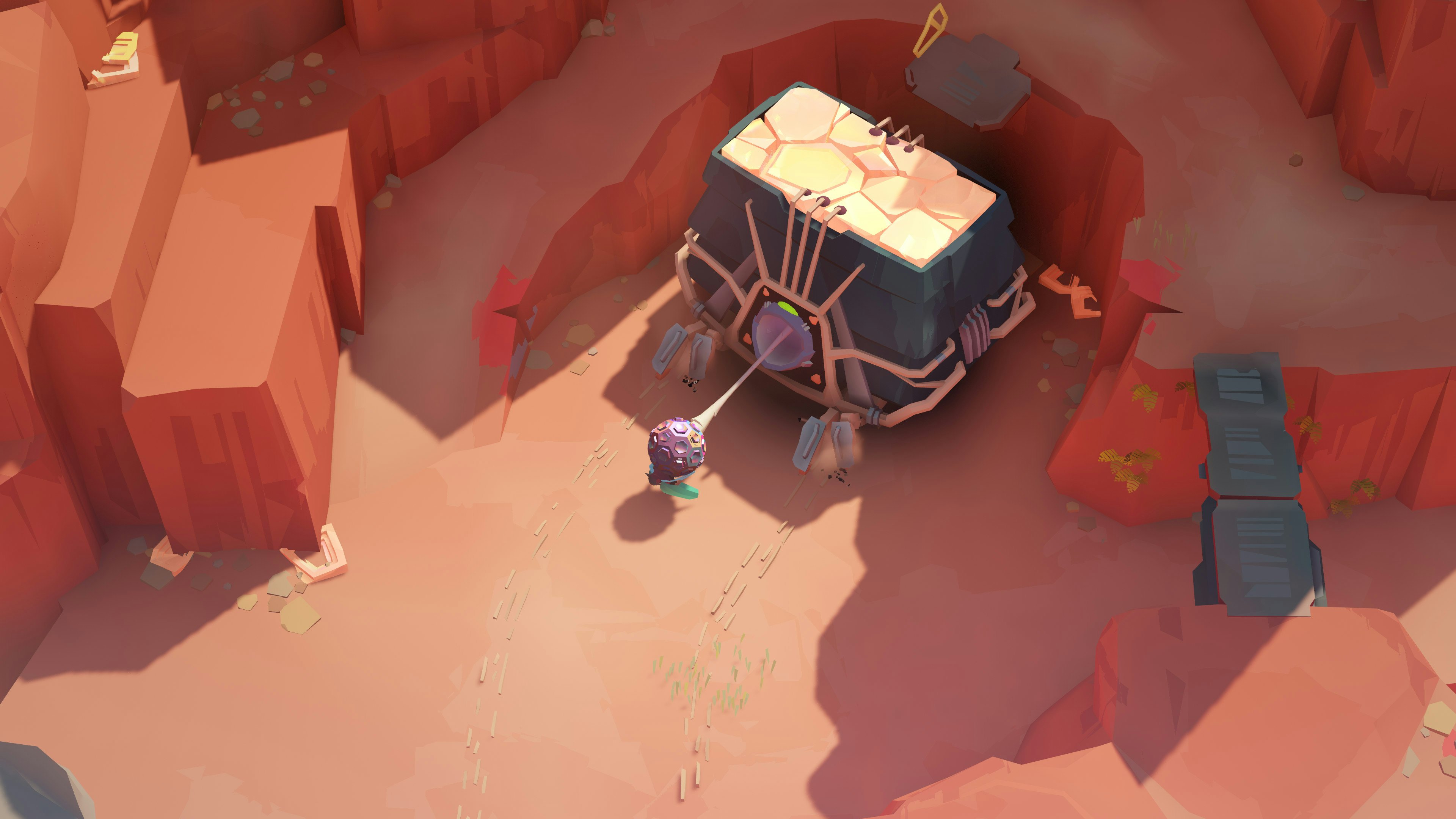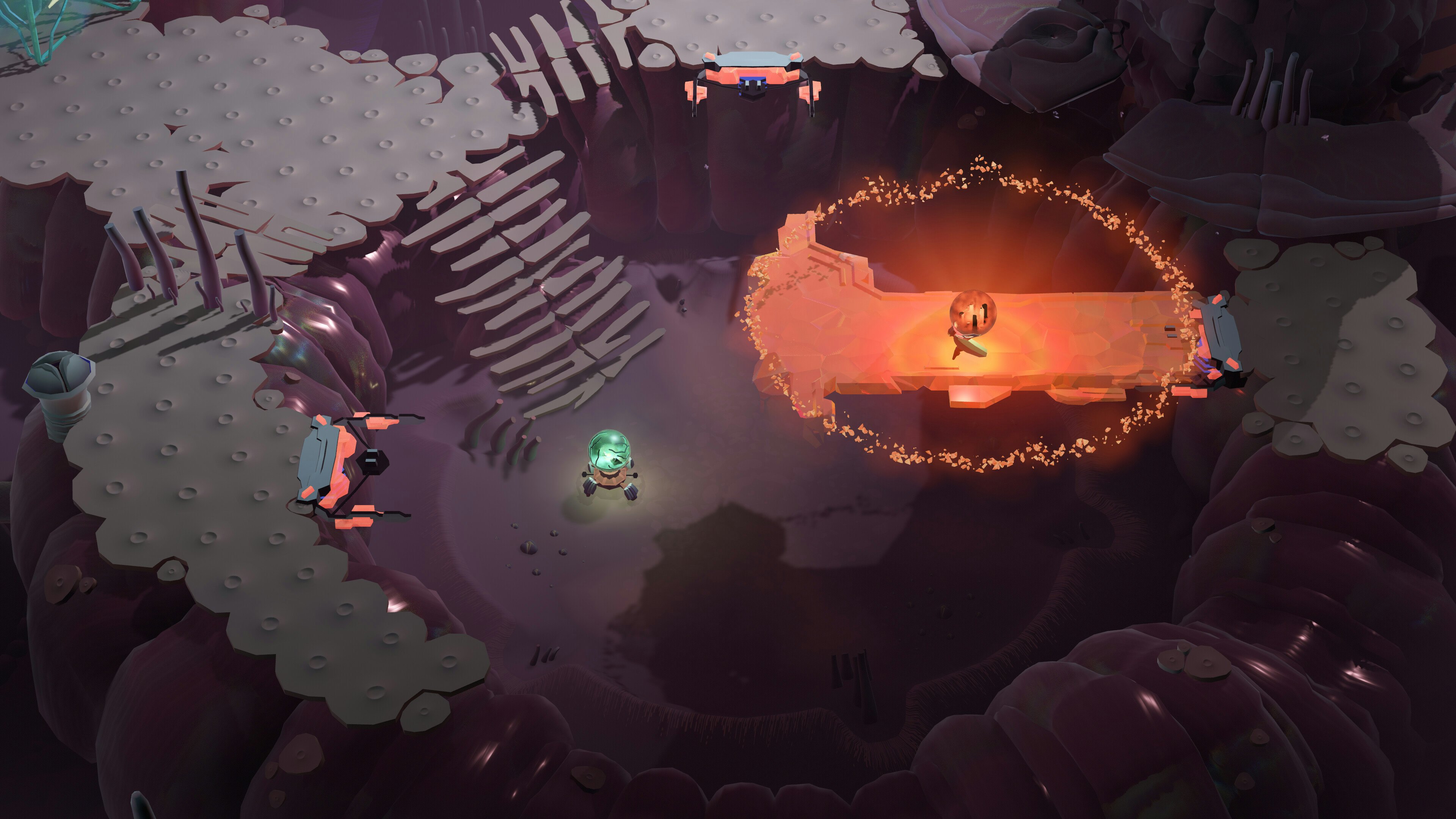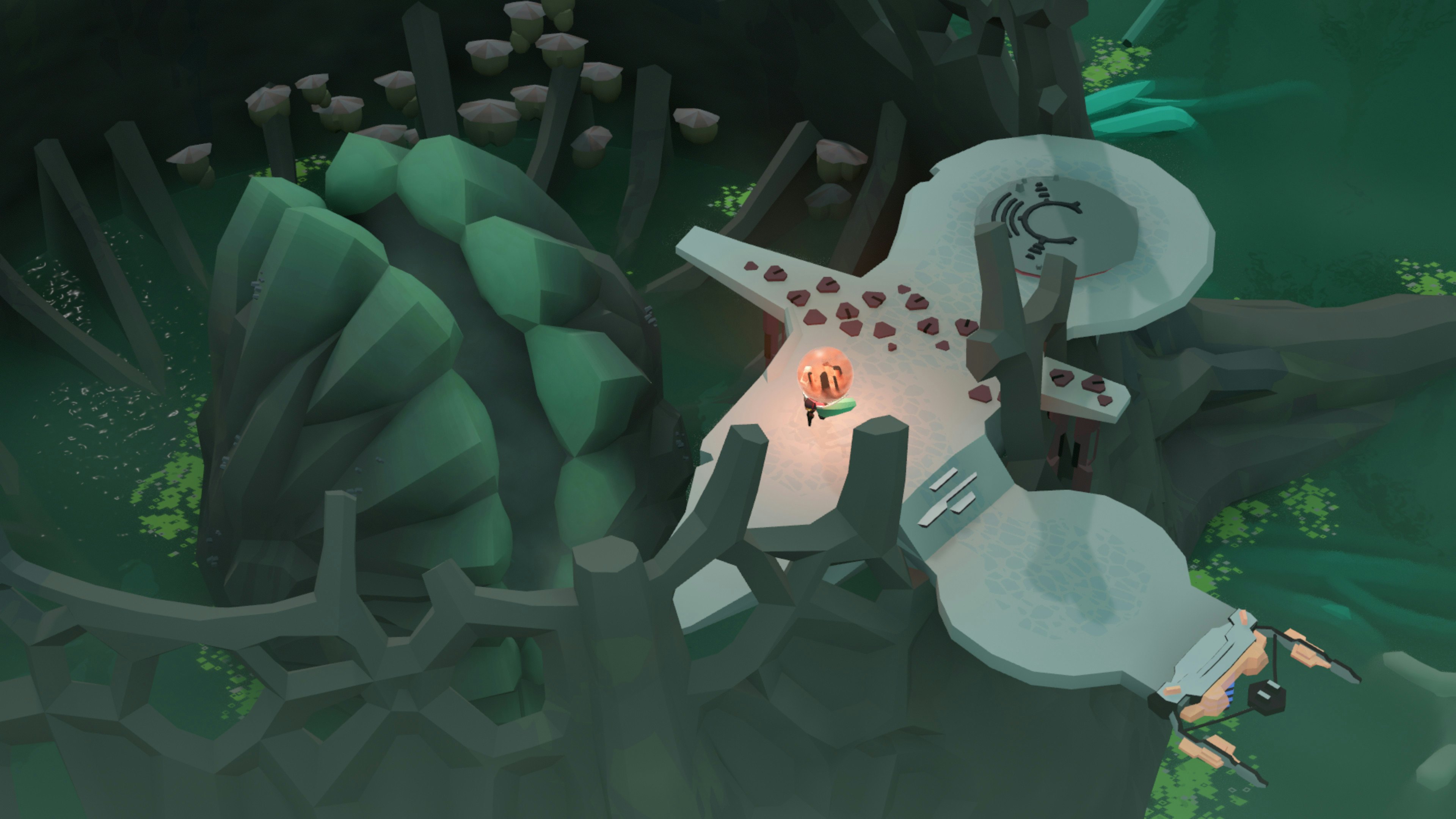
In developer Geometric Interactive’s Cocoon, the weight of the world is on your shoulders. Multiple worlds, actually.
Geometric Interactive was founded by two former Playdead employees, including the lead gameplay programmer of Limbo and Inside, Jeppe Carlsen. Limbo and Inside were dark in both art style and subject matter and earned acclaim for their excellent puzzle designs.
Cocoon is a very different beast from Playdead’s puzzle platformers, but it clearly benefits from having their lead gameplay designer at the helm. Where those games were monochromatic, Cocoon’s environments burst with color, with each location themed around a vivid palette. And unlike Playdead’s sidescrollers, Cocoon is a more open-ended 3D game with an isometric perspective. Despite those differences, the sense of unspoken history and the depth of puzzle-solving logic show that Cocoon is, in some ways, part of the lineage that started with Limbo.

You play as a bipedal beetle-like creature. After bursting forth from a cocoon, you set out to — well, it’s not quite clear. Cocoon keeps its plot under wraps, focusing more on vibes than any explicitly stated story. Not a single word is spoken or displayed onscreen. It even does away with popups marking interactable objects or spelling out its controls.
Fortunately, maneuvering through Cocoon is quite simple, with all interaction done through one button. At first, this just means activating switches, but only a few minutes into the game, something incredible happens. Interacting with one particular device causes you to fly fully out of the world you’ve been exploring.
Leaving the orange-tinted desert behind, you find yourself in another place, one that’s darker and more mechanical. Perched on a metal claw in the center of the room is a glowing orange orb containing the entirety of the world you just left. This is the magic of Cocoon. With this globe clutched in your pincers, you can use it to activate switches or use its latent power to project crystalline bridges from devices scattered around the environment.

When you come across a teleporter like the one that ejected you from the first desert world, you can use it to dive back in and resume solving puzzles there. Cocoon repeats this world-hopping trick multiple times, giving you layer upon layer of environments to jump through. Each world has its own puzzle-solving mechanics, but most impressive is how it combines them. What you do in one location can help you solve a puzzle in another, and stacking worlds inside each other in the right order becomes a crucial skill.
The joy of Cocoon is the slow unfolding of its worlds-within-worlds logic, but I won’t spoil too many specifics here. Solving puzzles isn’t about granting you new powers so much as it is about understanding the implications of systems that are already in place. It’s the constant reinvention of tools you already have, not the introduction of new ones that drives Cocoon’s frequent “I can’t believe you can do that!” feeling.
Cocoon’s impeccable puzzle design is matched by its gorgeous environments. Each world feels distinct and real, from rain-drenched swamps to one environment that I can only describe as uncomfortably fleshy.

Its sparse soundtrack is equally evocative. Written by Geometric Interactive cofounder Jakob Schmid, Cocoon’s score is understated, mostly providing background ambiance to the game. At pivotal moments, its synths soar and speed up, driving you through the end of a tough puzzle or one of the game’s few boss fights.
The rest of Cocoon’s soundscape is just as impressive. From the pleasant bloop of alien plants brushing against your character to the click-clack of their feet on the ground, every small sound helps ground you in the game’s impossibly strange reality.
Even if you’re not a frequent puzzle game player, Cocoon isn’t likely to keep you stumped for long. It seems calibrated not to make its challenges difficult, but to make them satisfying. Thanks to the clever ways it restricts your movements — from sealing doors to sending elevators away once they’re no longer useful — you’ll never have to wonder if you missed a turn somewhere or need to visit another area to solve the current puzzle. You’re always right where you need to be, and Cocoon’s limited toolkit means all your options are clear. What’s left is just your ability to wrap your mind around the game’s unique logic, and the feeling of elation when you do.







